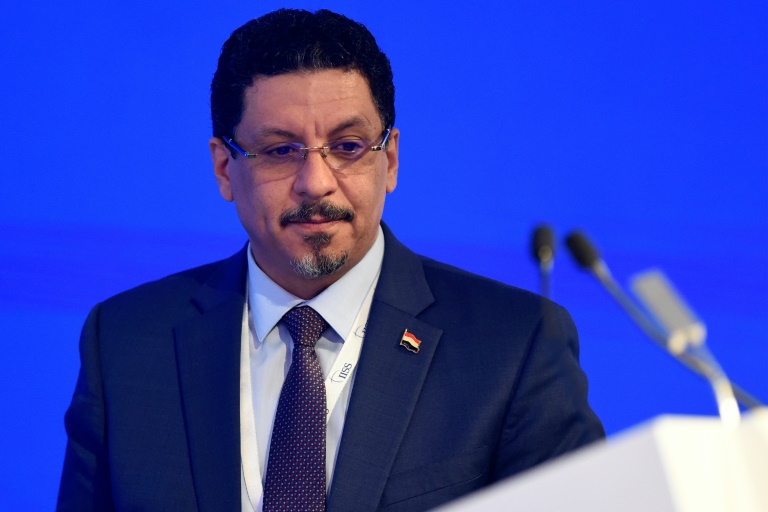Yemen government names top diplomat as new premier

The new prime minister of Yemen’s internationally-recognised government, Ahmed Awad bin Mubarak, is widely seen as a staunch adversary of the Huthi rebels
Dubai – Yemen’s internationally-recognised government Monday named foreign minister Ahmed Awad bin Mubarak as the new prime minister in a surprise appointment that analysts say will likely anger the country’s Iran-backed Huthi rebels.
Bin Mubarak replaces Maeen Abdulmalik Saeed at a time of rising tensions in the Arabian Peninsula’s poorest country following a spate of Red Sea attacks by Huthi rebels which have prompted retaliatory strikes by the Unites States and Britain.
A decree issued by Yemen’s presidential council and carried by the official Saba news agency announced bin Mubarak’s appointment as premier and assigned the outgoing prime minister to the post of presidential advisor.
It did not give a reason for the move.
Bin Mubarak, Yemen’s former ambassador to the US, is widely seen as a staunch adversary of the Huthi rebels, who abducted him in 2015 and held him captive for several days.
He previously served as chief of staff of Yemen’s presidential office and was also appointed as the country’s envoy to the United Nations in 2018.
Mohammed Al-Basha, a Yemen expert for the US-based Navanti research group, said bin Mubarak is seen as one of the “architects of the Saudi-led coalition” that intervened against Huthis in 2015 to prop up the internationally-recognised government, a year after the rebels captured the capital Sanaa.
“The Huthis are unlikely to embrace the appointment of bin Mubarak,” he said, adding that bin Mubarak is a long-time adversary of the group.
His appointment “is likely to intensify tensions between the Huthis and the internationally-recognised government,” the expert added.
The Huthis, part of the anti-Western, anti-Israel “axis of resistance” of Iranian-backed groups, have been harassing Red Sea shipping for months, triggering US and British reprisal attacks.
The Huthis have launched more than 30 attacks on commercial shipping and naval vessels since November 19, according to the Pentagon.
The rebels say the attacks are in solidarity with the Palestinians and in protest at the Israel-Hamas war that has been raging in the Gaza Strip since October.
The attacks have prompted some shipping companies to detour around southern Africa to avoid the Red Sea, a vital route that normally carries about 12 percent of global maritime trade.
In response, US and British forces have launched strikes targeting Huthi missile sites and other military facilities. The US has also carried out a series of unilateral strikes.
In recent remarks, bin Mubarak called on the European Union to designate the Huthis as a terrorist group and has advocated for increased military support to government forces in the wake of the Red Sea attacks.
